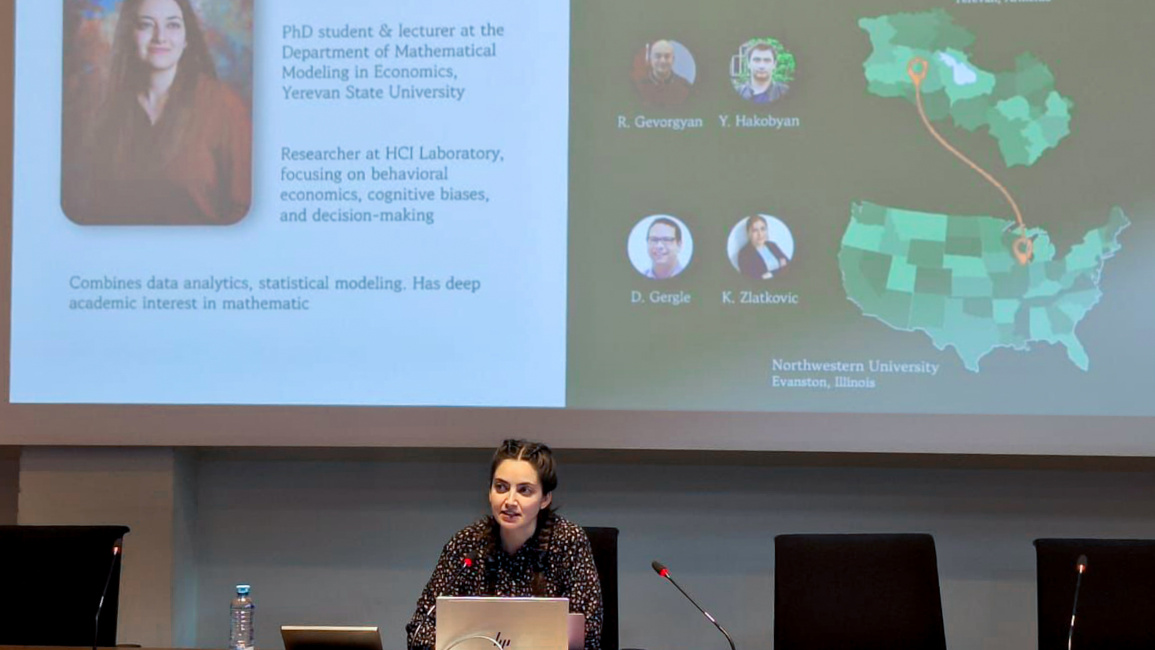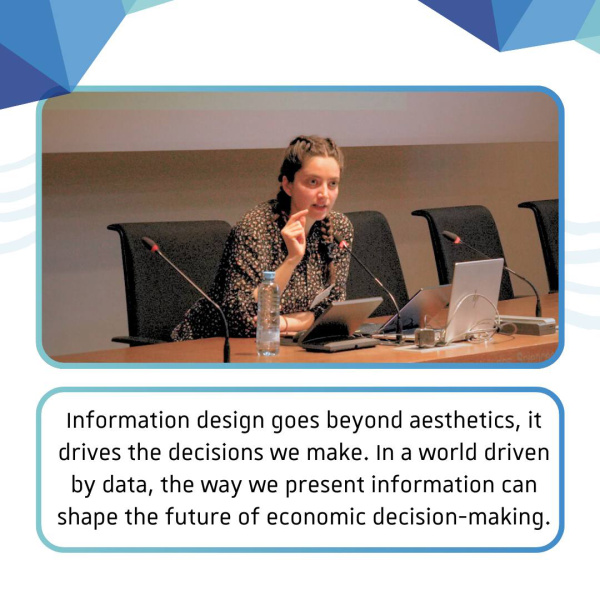July 25, 2025 | 12:35
Science
Education
Research
YSU lecturer represents the region as sole participant at Strasbourg conference
Within the framework of research conducted by the Human-Computer Interaction and Learning Remote Laboratory, Lusine Zilfimyan, a lecturer in the Chair of Mathematical Modeling in Economics at YSU Faculty of Economics and Management, participated in the international conference held in Strasbourg titled "Addressing Access and Accessibility Through Usability and Design: Ideas and Approaches for Web Communication, Technical Communication and Localization." She delivered a presentation focusing on the interrelation between information and economic decision-making. YSU Business Incubator, aiming to commercialize and translate high-impact scientific research into practical applications, collaborates with the laboratory and considers participation in the conference an opportunity to explore innovations in the field.

In her presentation titled "The Impact of Information Presentation Formats on Economic Decision-Making," the lecturer outlined key issues that explain how the format in which information is presented—including its sequence, layout, and visual design—can significantly influence human behavior across different contexts. The talk emphasized how factors such as the complexity of information, changes in the structure of choices, and time constraints affect the decision-making process.
The research on this topic is being conducted within the framework of a remote research laboratory established at YSU with the support of the "Establishment of Remote Laboratories Program-2024" grant provided by the Ministry of Education, Science, Culture and Sports of Armenia, in collaboration with Northwestern University (USA). Lusine Zilfimyan is a member of this research lab and is actively involved in the project titled "Human-Computer Interaction and Learning."

Her report outlined a set of experimental tasks designed to be implemented by integrating EEG-based neural data, behavioral results from questionnaires, and decisions made under various conditions. The main objective of the study is to uncover the neurocognitive mechanisms that underpin human decision-making processes.
"Decision-making is one of life’s greatest complexities. People rarely analyze all the information available to them due to the overwhelming nature of evaluating every possible outcome. Instead, they often rely on partial data, which leads to non-rational choices. Behavioral economics examines these phenomena by moving beyond traditional rational models and incorporating psychological, emotional, and cognitive factors," said Lusine Zilfimyan.
Her research team proposes an investigation into how cognitive biases influence the perception of technology and information, as well as their impact on economic decisions. In particular, they aim to assess how human-computer interaction (HCI) can improve information accessibility, reduce cognitive distortions, and promote more rational decision-making.
The Strasbourg conference brought together a wide range of specialists, including usability researchers, technical communication experts, UI/UX designers, and students interested in HCI. According to Zilfimyan, the event fostered a valuable combination of theory and practice:
"It was enlightening to witness how theory intersects with real-world application in a scientific setting. After my talk, I received several collaboration offers, which underscores both the relevance of the topic and the interest in our team’s approach," she noted.
Importantly, as the sole speaker from her region, Lusine Zilfimyan contributed to the diversity of discussions and expansion of perspectives, something the conference organizers highlighted as a significant enrichment to the symposium.

